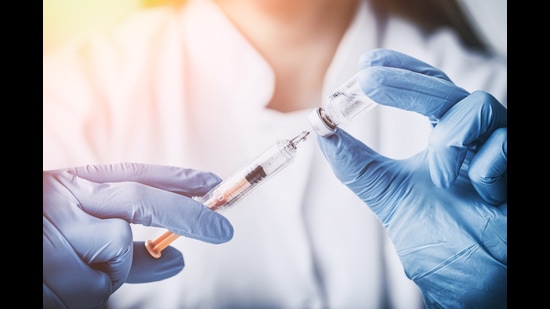Jul 26, 2024 09:20 PM IST
Hepatitis B is a silent killer; the symptoms appear only in one out of ten infected, and that too once the disease is advanced.
The World Health Organization (WHO) observes July 28 as World Hepatitis Day, to mark the birthday of Dr Baruch Samuel Blumberg, who discovered the Hepatitis B virus (HBV) in 1965. According to a 2024 report by the WHO, currently 254 million people live with chronic HBV infection (PLWH). Nearly 29.8 million of them live in India. Hepatitis B caused an estimated 1.1 million deaths in 2022, mainly due to cirrhosis and liver cancer.

Hepatitis B is a silent killer; the symptoms appear only in one out of ten infected, and that too once the disease is advanced. Unfortunately, globally, only 13.4% of the infected are aware that they have Hepatitis B. In India, this falls to just 2.4%. Treatment coverage is only 2.6% of the infected globally. Despite far better tools for the diagnosis and treatment than Covid-19, we, as a society, have failed PLWH due to our ineffective polices.
Three clear steps will help remedy this. First, we must decentralise Hepatitis B care. It is established that suppression of the hepatitis B virus DNA reduces the development of cirrhosis and cancer. However, this is not being done. The fault lies with the doctors and the guidelines they develop. Existing guidelines call for testing to detect the infected and assess eligibility for treatment under fixed diagnostic benchmarks. All of this needs specialists, which takes up around 80% of allocated national resources, leaving little for drugs and monitoring. Painfully, after all this, seven out of ten HBV infected get excluded. They are asked to come every six-12 months for follow-up but are not eligible for treatment. They carry the virus and suffer fear, ignominy, depression, and social isolation. Changing the guidelines from “treat select” to “treat all” would prevent the risk of transmission and disease progression in the infected.
The current practice in HIV/AIDS control is to suppress the virus by drugs for life. This has resulted in a marked reduction in new infections and deaths. In Hepatitis C, another deadly virus causing cirrhosis and liver cancer, we treat all. We do this for TB as well. Why not do the same for hepatitis B? Antivirals can keep HBV suppressed in nearly 95% of patients and can safely be given for years at less than ₹4,000/year. In fact, these drugs should be given free like the free treatment for HIV, TB and Hepatitis C.
Second, we must ensure universal vaccine coverage against HBV. The vaccines are effective, low-cost, safe and give immunity against HBV infection. India is amongst the largest producer of these vaccines.
Third, we need to change society’s mindset. PLWH suffer from discrimination and are stigmatised. People think that hepatitis B infection is like HIV, through sexual transmission. This is wrong. Most HBV transmission is through mother to baby, with no fault of the infected. Such people are denied skilled jobs and visas. Many PLWH hide their infected status throughout life and even never marry. Imagine the undeserved mental trauma and isolation! Society should embrace them instead. Guaranteeing equal rights and social status for people living with Hepatitis B, like it is for HIV, is the need of the hour.
Converting the National Viral Hepatitis Control Programme to a National Hepatitis Elimination Programme (the initially proposed name) would require effective implementation of all three steps, and bold political and community leadership.
SK Sarin, is director, Institute of Liver and Biliary Sciences (ILBS).The views expressed are personal
Story Saved


